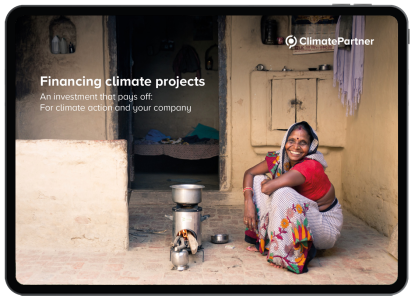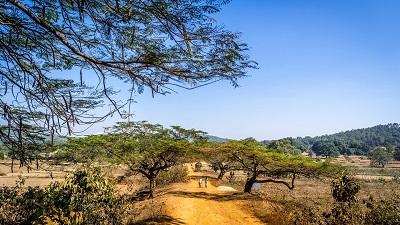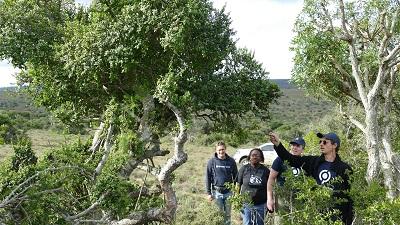It's more than just CO2 savings
Our climate projects engage people and stimulate local development, on top of protecting the environment.

Climate projects at ClimatePartner
ClimatePartner develops and invests in projects all around the world to provide its clients with a broad portfolio of high-quality and certified projects to invest in. This project portfolio consists of various technologies:
Nature-based solutions
- Afforestation, forest protection, blue carbon, regenerative agriculture, improved forest management
Social impact
- Clean cookstoves, clean drinking water, small biogas plants
Green energy
- Wind energy, solar energy, hydropower, biogas/biomass, geothermal energy
All climate projects are based on international standards, such as the Verified Carbon Standard (VCS), and the Gold Standard, and regularly audited by independent third parties. The standards set out the rules and requirements that all climate projects must meet in order to be recognised as a proven method of avoiding, reducing, or removing carbon emissions from the atmosphere.
Impact beyond CO2
The transition to a low carbon, more resource-efficient and sustainable world, needs to be fair, and it is crucial to provide support to the communities that are suffering the most from the impact of climate change. Sustainability is about more than just climate action and it is important that all strategies, initiatives, and investments are considered with this impact in mind.
Guide: Financing Climate Projects
In this free guide, you will learn all about climate projects: why they are needed and worth funding, how they work, and how we support you from project selection to communication.

This is why climate projects often support multiple UN Sustainable Development Goals (SDG) beyond climate action (SDG #13). For example, clean cookstoves projects also have a positive impact on health and well-being (SDG #3) by reducing diseases linked to indoor smoke inhalation. Many afforestation projects empower women (SDG #5) in the local community they are situated in by providing decent work (SDG #8) throughout the project lifecycle, and they improve biodiversity (SDG #15).
Many of the standards (e.g. Gold Standard or VCS CCBS) require other impact categories to be monitored as well to receive certification, meaning the purchase of a verified emission reduction can entail multiple verified co-benefits. This can be a powerful way of driving sustainable development while tackling the urgent issue of climate change.
Project standards
Standards and independent auditors ensure effective climate projects at ClimatePartner.


Project development
Take climate action by developing a climate project with ClimatePartner Impact.

Project technologies
How does a climate project with different technologies work?
Every climate project saves CO2, but the individual projects are based on different technologies.

Additional commitment
Next to climate projects, ClimatePartner also offers a wide range of non-certified projects. These types of projects can be combined with a certified climate project to create an additional commitment.
ClimatePartner offers non-certified projects within the following categories:
- Regional afforestation in your country
- Ocean-plastic recovery with the Plastic Bank
- Soil carbon sequestration
- Biochar
- Peatland
How can we assist you? Please contact us.
[unsichtbarer anchor]
How does a climate project work?
Climate projects compensate for carbon emissions through, for example, afforestation efforts and the expansion of renewable energies. Independent organisations monitor the precise amounts of carbon saved, which are then sold in the form of verified emission reductons, which in turn finance the project. Projects that can be carried out without this financial support are not recognised as a climate project.
